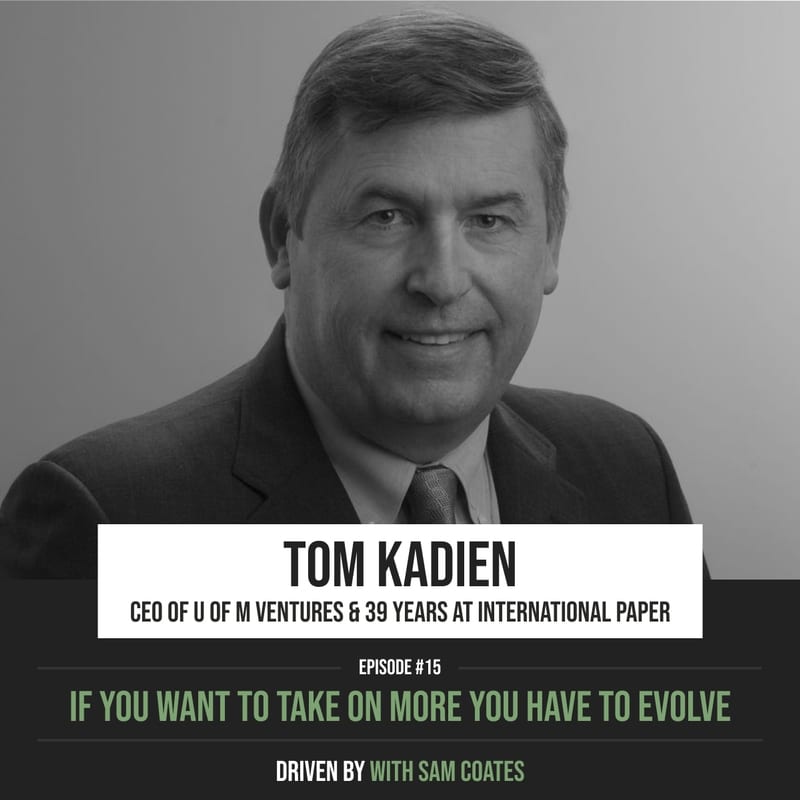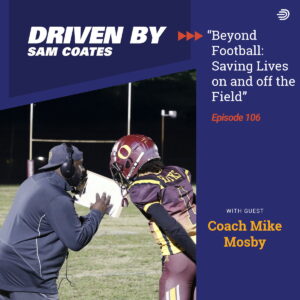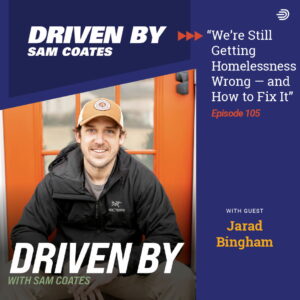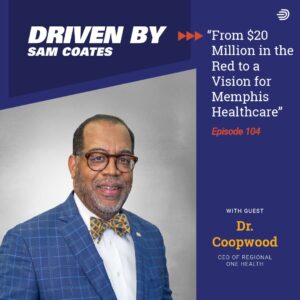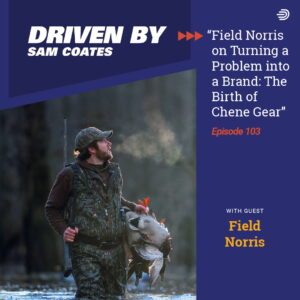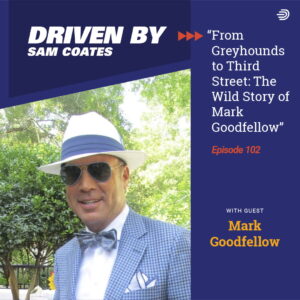My guest this week is Tom Kadien. Tom spent 40 years working for International Paper. For those that don’t know, IP is the largest pulp and paper company in the world, with $21 billion in revenue. While at IP, Tom was over many parts of the company including Head of IP Europe, IP Asia, IP India, Head of Global Citizenship and more. After retiring from IP, Tom took over the leadership of UMRF Ventures, which was created to give students economic opportunity and real world experience while getting their degree at University of Memphis. This is a great conversation, let’s get started.
EPISODE RECAP
- My guest this week is Tom Kadien (1:07)
- Tom, what made you want to take over UMRF Ventures after retiring from IP? (3:07)
- Can you talk a little bit about your perspective of work – from a financial standpoint, there’s no need for you to have to work. But it sounds like there’s a core belief about work that you have. (4:12)
- Can you talk a little about the value that a Memphis alum may not understand about the benefit of UMRF Ventures? (6:53)
- How would you recommend a student take full advantage of their time at the University of Memphis? (9:35)
- From your perspective starting from the ground up and taking on responsibility after responsibility, how did you take on your own tempo of urgency and how did you approach that with your team? (13:13)
- Do you feel like because you are competitive you could have had the drive toward anything or was there anything particular about IP that kept you engaged? (16:10)
- How old were you when you ran into bad bosses, how long were they over you and can you give some advice or perspective if someone may have a bad boss? (18:02)
- Sounds like you wanted to be part of a team or culture and you started getting more opportunity – it wasn’t a specific strategy or work focus? (19:58)
- From a corporate standpoint, were there any hard times from a family perspective moving your family around the world and having a very fast paced lifestyle? Are there any life lessons you can pass on? What did you learn that served you well? (21:11)
- It sounds like you and your wife really communicated and had mutual buy in and agreement (25:30)
- When you would take over a department or portion of the company, what would be your mindset or perspective on coming in and getting the area into the place you wanted it to go to (27:40)
- How did you learn how to worry about the things you need to worry about and let go of the things that weren’t important? (31:06)
- Can you talk a little about how you’ve learned to handle mistakes or hard lessons learned throughout your career? (33:54)
- Can you talk a little about the next 10-15 years with virtual working, do you see any long term change happening to corporate America? (37:10)
- Can you talk about how you learned how to accept or handle issues that threw you off guard? (41:44)
- Did it ever feel weird or embarrassing flying company or private planes? (46:14)
- I thought it was really interesting that you were on the board at Sherwin Williams and they bought Valspar. What was that acquisition like on the board? Can you talk a little about mergers and acquisitions – when they go well, when they do not go well? (48:31)
- Could you give 3-5 bullet points on why a lot of deals don’t work out? (51:49)
- So is it really three main things – the forecast on sales and ROI, the leadership and the cultural identities. Could you boil it down to that? (53:12)
- On a deal that size – $10 million – how long does a conversation take place? (55:13)
- From a personal standpoint, what are you most looking forward to over the next 10 years? (57:35)
- Last question – when you think back on your career, are there a few principles or values you want to pass on? (59:40)

